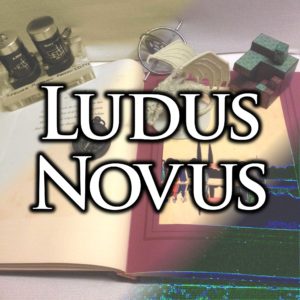
/
RSS Feed
In this podcast episode, I present and discuss my definition of the word “game.” In short, a game is an interactive simulation that provides metrics which allow a user to track progress toward a goal. Listen on to hear why Microsoft Paint is a game and why winning and losing are really the same thing.
I’d love to hear what you think! Comment if you have any opinions on the things I discuss in this episode.
When I was younger me and a friend used to have tons of fun creating roleplaying scenarios in MSPaint.
One would go out while the other would design a large maze filled with traps, dead ends and traps. Then he would zoom in as far as possible to the entrance of the maze and using only the scroll bars the other player would navigate the maze and fight monsters by rolling dice and comparing designed stats.
It could be equally as fun to design as to play the maze, and I believe its a great example on how we define our own games.
Have you seen Dan Cook’s “The Princess Rescuing Application” slides? http://lostgarden.com/2008/10/princess-rescuing-application-slides.html Your definition of game reminded me of that.
Seems like we agree that the definition of what a game is needs to be expnded. I made a blog post on this subject not very long ago, inspired by Corvus Elrod’s definition of game.
http://blog.agj.cl/2009/04/what-video-games-are/
I don’t think I agree that Paint is a game, though. I think it is clearly a tool, both for its intended and its actual use. As any tool, it can be implemented as a toy, though, but the tool does not constitute the game (much like the game console is not the video game, but the software is). Also, I don’t think you explained very deeply what you meant by ‘metrics’ in the context of a game (especially because I don’t see how Paint provides metrics).
I like your definition (“Game is a set of rules and/or conditions which serve as a bounded space for play.”) although it raises a new problem: the definition of “play.” For instance, I’m sure that The Path is a game, but I would not consider what I was doing when I was experiencing it to be playful.
Metrics are explicit or implicit measurements provided by a game. Paint is admittedly very weak in this area; its only metrics are things like “percent of space colored red” and “image dimensions,” which only lend themselves to very simplistic games. Morrinn, above, wasn’t playing the Game of Paint; he was playing a game that, as you say, used Paint as a tool.
Corvus also states his definition of play (‘the self-guided exploration of possibility within a bounded space’). The point is that play needs not be fun: it is just exploration, and tends to result in delight, but that depends on the context.
Okay, in that case, I like the definition. In my own thought and design, I tend to put more of a stress on goals, which would (I guess) be the “self-guided” part of that definition. But I like having goals front-and-center in the definition, since challenge and achievement is so essential to most games.